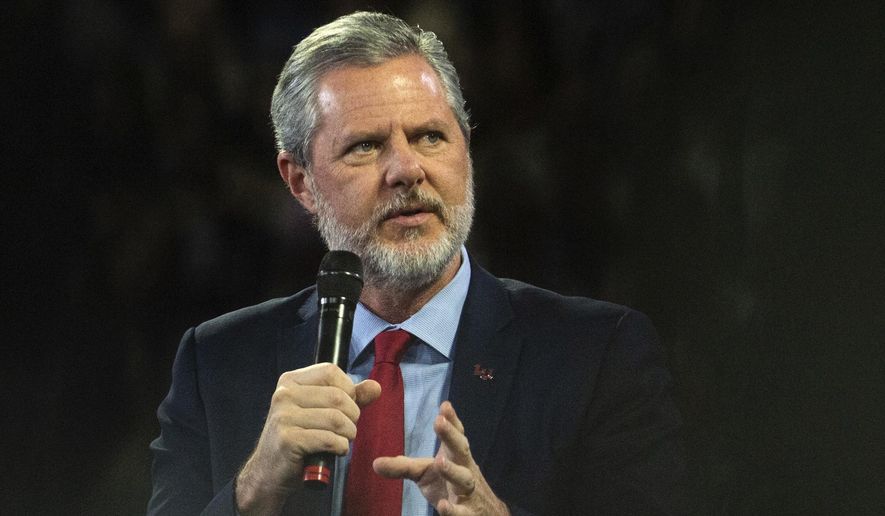Jerry Falwell Jr., the disgraced former president of Liberty University, has sued his former employer seeking nearly $8.5 million in retirement benefits he said the school improperly denied him.
A filing in federal district court in Lynchburg, Virginia, where the school is located, claims Liberty’s board of trustees denied the payment last autumn, two years after Mr. Falwell’s August 2020 resignation was accepted. Liberty is the largest Christian university in the country with more than 130,000 students enrolled.
Mr. Falwell became Liberty’s president in 2007 when his father and the school’s founder the Rev. Jerry Falwell Sr. died. The younger Mr. Falwell had previously been the school’s vice chancellor and general counsel since “the early 1990s,” according to the filing.
The payments were negotiated in July 2020, one month before Mr. Falwell’s resignation.
“During Mr. Falwell’s time as Liberty’s President, Liberty’s enrollment increased from 9,600 residential students and 27,000 online students to 15,000 residential students and 108,000 online students. Through Mr. Falwell’s leadership, he has helped steer Liberty away from financial ruin, while developing Liberty into the world’s leading evangelical university and one of the largest private non-profit universities in the nation with an endowment close to $2 billion,” the complaint alleges.
Mr. Falwell’s attorney, Vernon Inge, said in a Dec. 22 letter to the trustees that Mr. Falwell “was not terminated for Cause” nor has he “engaged in any Competitive Activity” since he left the school.
But in April 2021, the school sued Mr. Falwell for $30 million claiming he concealed his wife’s affair with Giancarlo Granda, a pool attendant the couple met in 2012. The school claims the former executive concealed knowledge of the affair and other personal conduct issues while negotiating a 2019 contract extension that included the retirement benefits payment.
On Feb. 24, Liberty’s trustees’ chairman Carroll Hudson said because of the university’s suit against Mr. Falwell, the school could not make the payment until that matter is settled. Mr. Inge, in a letter to the board, said the pending legal action against his client was not a reason to deny the payment.
Liberty University’s spokesman did not immediately respond to a request for comment from The Washington Times. In a statement to the Lynchburg News & Advance newspaper, the school said it “will defend the new action on the same grounds it has already pled on the record in the state case.”
• Mark A. Kellner can be reached at mkellner@washingtontimes.com.




Please read our comment policy before commenting.